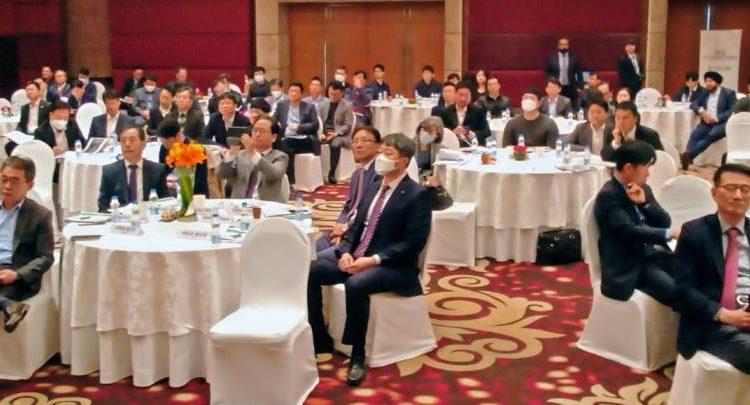NEW DELHI: Apparently haunted by the specter of the outbreak of Novel coronavirus across the world, the Korean business community in India has expressed confidence in the capability of the Indian government in containing the effect of this deadly virus on the lives of people as well as on the business environment here.
The issue of the outbreak of coronavirus prevailed strongly in the addresses of most of the speakers at the annual General Assembly meeting of Korea Chambers of Commerce in India (KOCHAM) held in New Delhi on February 7.
Many here were seen wearing masks on their faces as a precautionary measure.
Supported by the Korea International Trade Association (KITA), Korea Trade-Investment Promotion Agency (KOTRA), Presidential Committee on New Southern Policy and Embassy of Republic of Korea, the annual event witnessed participation of more than 100 representatives of about 70-80 Korean companies operating in India.
Though the word “coronavirus” found mention in the speech of almost every speaker, all of them were of the view that the scare of this virus was limited in India as the government was aptly taking necessary measures to control its impact here, said Hee Chul Jung, Secretary-General, KOCHAM.
“Most of the speakers said India will tackle this situation well the way it has done in the past in the event of the outbreak of epidemics. They said that the coronavirus virus will have a small impact on the Indian economy, and there is no scare of it in India. The fundamentals of the economy are very strong in India,” said Hee Chul Jung, who also happens to be the Chief Representative (Director), KITA in India.
Shin Bong-kil, Ambassador, ROK in India, Moon Young Kim, President, KOTRA Southwest Asia, Head office, and Euy Don Park, Chairman, Presidential Korean Associations in India, were also present on the occasion.
Held every year, the KOCHAM general assembly aims at updating the member company representatives with the changing business environment in India, evolving taxation regime, changes and new introductions in government policies and regulations.
The occasion is used to engage the experts and consultants who offer solutions to the issues and concerns being faced by Korean companies in India.
Many a participating company representatives raised queries related to the recently announced Union Budget for the year 2020-21 and many changes proposed in the taxation regime, ways of doing business like e-bill that will become mandatory from next fiscal. Many raised concerns related to General Goods and Services Tax (GST) as there prevailed confusion in the corporate world for this being an evolving tax regime.



